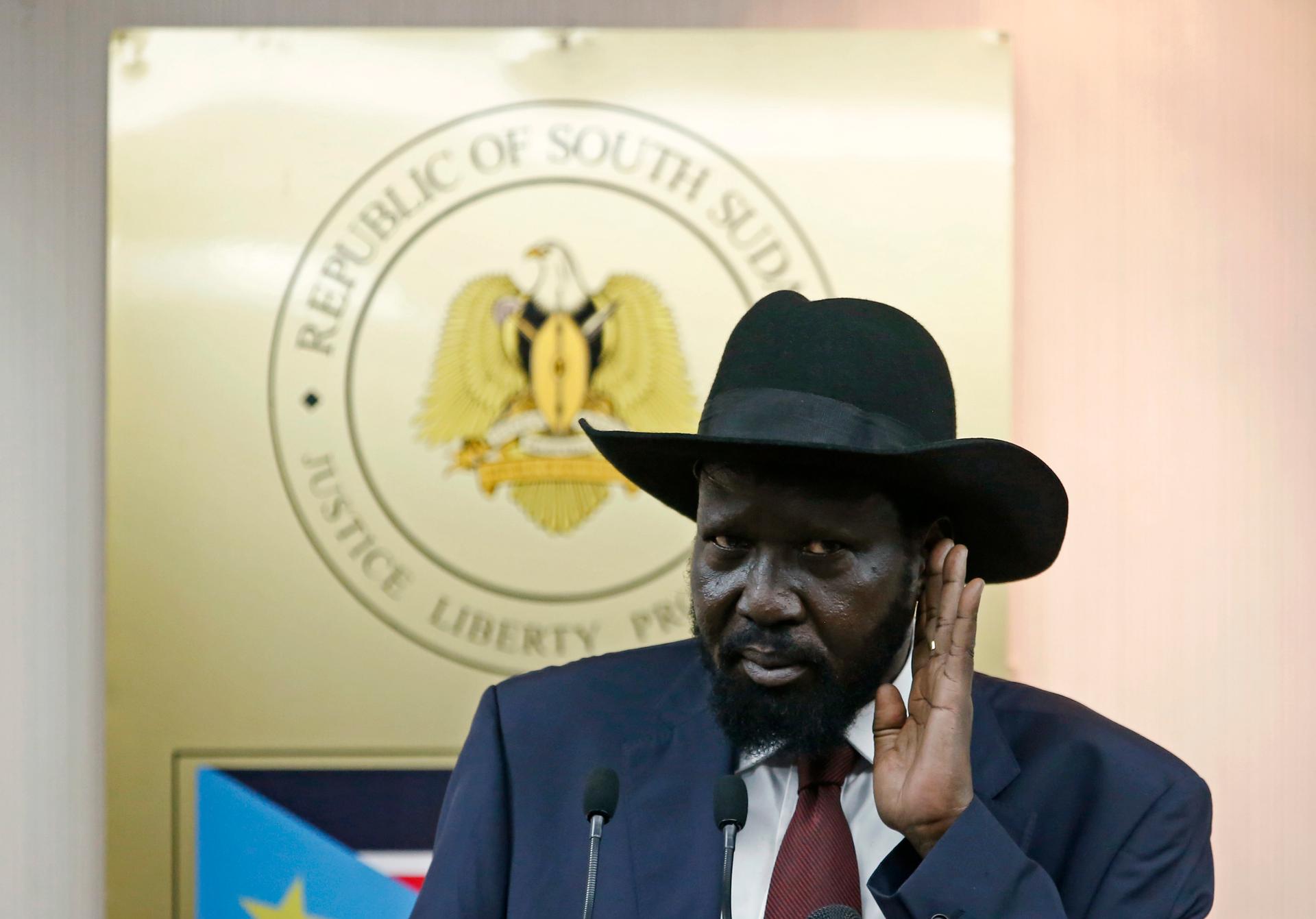Was there a coup in South Sudan?
South Sudan’s President, Salva Kiir, listens to a question during a news conference, Wednesday. He’s accused of not listening to critics.
South Sudan won its independence from the Sudan in 2011, after a brutal, decades-long struggle for freedom. But this week, violence again gripped the nation.
Hundreds of deaths have been reported in fighting between factions of the army in the capital, Juba, since Sunday. President Salva Kiir accused former Vice President Riek Machar of launching a military coup over the weekend. Machar denies it and, in turn, accuses Kiir of suppressing opponents.
Kiir's government remains in power, though the situation is extremely confused. The capital was mostly quiet on Wednesday, but fighting was reported in the important provincial city of Bor.
The BBC's Africa Security correspondent, Moses Rono, says it's not clear if there was an attempted coup, "but by whatever name you call it, there was fighting between military units" in the capital.
Political differences have been escalating all year, and President Kiir dismissed his entire cabinet, including Vice President Machar, in July.
"What is of concern," says Rono, "is the fact that [Machar and Kiir] are from the two main ethnic groups in the country. And their differences mirror the wider differences in society, and also differences within the military, which have now exploded." Machar is a Nuer, while Kiir is a Dinka.
Rono says the UN is worried about possible ethnic conflict. But he adds that a lot of people in South Sudan tell him that "it's absolutely not" an ethnic conflict. The fighting, he hears, is over politics.
Many held a lot of hope for stability and peace after independence in 2011. But Rono says there were always concerns that politicians would try to benefit from independence to increase their power. South Sudan is benefiting from a boom in oil production.
"We always thought that maybe those people who were predicting the country could go in this direction — to some sort of violence and division — were wrong. But now we see where we are," he says.
The US Embassy has stopped operations in South Sudan and has evacuated non-essential staff.
